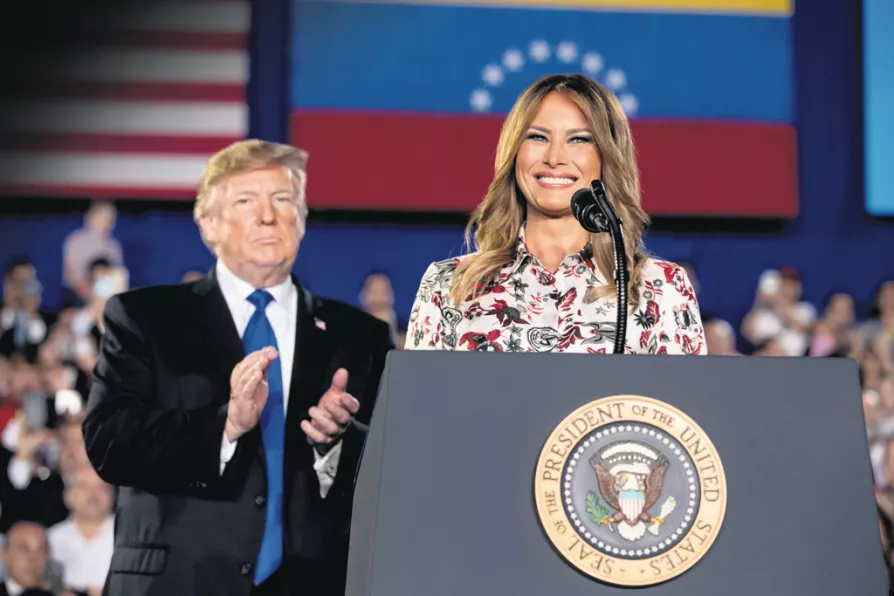As tens of thousands return to the streets for the first national Palestine march of 2026, this movement refuses to be sidelined or silenced, says PETER LEARY

 First lady Melania beams at a gathering of the Venezuelan American community in Florida, as Donald Trump spoke attacking Venezuelan president Nicolas Maduro’s socialist government
First lady Melania beams at a gathering of the Venezuelan American community in Florida, as Donald Trump spoke attacking Venezuelan president Nicolas Maduro’s socialist government
WHATEVER you may think of US National Security Adviser John Bolton, he is at least honest about the reasons for US aggression towards Venezuela. While Britain’s Foreign Secretary Jeremy Hunt and Latin America Minister Alan Duncan try to justify Britain’s craven support for US imperialism by falsely accusing President Nicolas Maduro of rigging elections, Bolton has openly stated that he wants US corporations to control and run Venezuela’s oil industry.
In other words, he wants to reverse the nationalisation of the oil industry that took place in 1976 when the then Venezuelan president Carlos Andres Perez created Petroleos de Venezuela (PDVSA).
Venezuela’s hydrocarbon boom began in 1922 when Shell discovered huge deposits of oil in the Maracaibo basin. In 1920/21, Venezuela had been a small producer exporting 100,000 barrels of oil that were worth one ninth of the country’s coffee exports over the same period. By 1926/27, annual exports were six million barrels, and by 1935/36, 23 million barrels or 20 times the value of exported coffee.
Under the dictatorship of Juan Vicente Gomez, oil companies from the US and Europe were given long leases and generous tax breaks that brought them huge profits. By the end of the 1930s, Shell, Standard Oil and Gulf controlled 99 per cent of production and the state retained only between 10 and 20 per cent of the profits. Needless to say, neither the US nor British governments of the day had anything to say about the democratic deficit in Caracas.

International solidarity can ensure that Trump and his machine cannot prevail without a level of political and economic cost that he will not want to pay, argues CLAUDIA WEBBE

US baseless accusations of drug trafficking and the outrageous putting of a bounty on a president of a sovereign country do not bode well, reports PABLO MERIGUET

FRANCISCO DOMINGUEZ says the US’s bullying conduct in what it considers its backyard is a bid to reassert imperial primacy over a rising China — but it faces huge resistance











